Related Research Articles
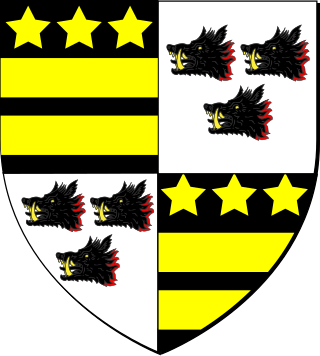
Baron Carbery, of Carbery in the County of Cork, is a title in the Peerage of Ireland. It was created in 1715 for George Evans, with remainder to the heirs male of his father and namesake George Evans, a supporter of William and Mary during the Glorious Revolution, who had earlier declined the offer of a peerage. After his elevation to the peerage, Lord Carbery represented Westbury in the House of Commons. He was succeeded by his eldest son, the second Baron. He also sat as Member of Parliament for Westbury. His grandson, the fourth Baron, briefly represented Rutland in Parliament. He was succeeded by his uncle, the fifth Baron. On his death, the line of the eldest son of the first Baron failed. He was succeeded by his first cousin once removed, the sixth Baron, who had previously succeeded his father as second Baronet, of Castle Freke. Lord Carbery sat in the House of Lords as an Irish representative peer from 1824 to 1845. His nephew, the eighth Baron, was an Irish Representative Peer from 1891 to 1894. As of 2014 the titles are held by the latter's great-great-grandson, the twelfth Baron, who succeeded his father in 2012.

Brownlow Cecil, 2nd Marquess of Exeter, styled Lord Burghley until 1804, was a British peer, courtier, and Tory politician. He held office under the Earl of Derby as Lord Chamberlain of the Household in 1852 and as Lord Steward of the Household between 1858 and 1859.

Earl of Carbery, in the County of Cork, was a title in the Peerage of Ireland. It was created on 5 August 1628 for the Welsh courtier and politician John Vaughan, 1st Baron Vaughan. He had already been created Baron Vaughan, of Mullingar in the County of Westmeath, on 13 July 1621, also in the Peerage of Ireland. He was succeeded by his son, Richard, the second Earl. He fought as a Royalist in the English Civil War. On 25 October 1643 Charles I created him Baron Vaughan, of Emlyn in the County of Carmarthen, in the Peerage of England, which entitled him to a seat in the English House of Lords. His eldest son Francis Vaughan, Lord Vaughan sat as Member of Parliament for Carmarthen but predeceased his father. Lord Carbery was therefore succeeded by his second son, John, the third Earl. He notably served as Governor of Jamaica between 1675 and 1678 and as President of the Royal Society between 1686 and 1689. He had no surviving male issue and the titles became extinct on his death in 1713.
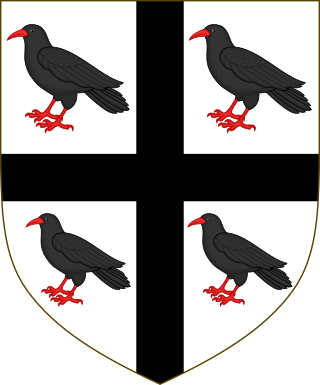
There have been two baronetcies created for persons with the surname Aylmer, both in the Baronetage of Ireland. Both titles are extant.
Mary Carbery (1867-1949) was an English author.
George Evans, 1st Baron Carbery PC (Ire) was an Anglo-Irish politician and peer. A member of a County Limerick family of Whigs, he entered the Irish House of Commons and was created a peer in 1715 as a reward for his father's support of the Hanoverian succession, after his father declined the offer. At the same time, he was returned to the British House of Commons for Westbury. He contested control of the borough with the Tories led by the Earl of Abingdon until 1727, when he stood down.
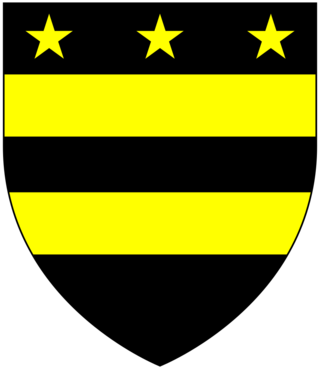
There have been two baronetcies created for persons with the surname Freke, one in the Baronetage of Great Britain and one in the Baronetage of Ireland.
Percy Brodrick Bernard was an Irish Conservative Party politician who sat briefly in the House of Commons in 1880.
Charles Brodrick Bernard was an Irish Anglican bishop.
Peter Ralfe Harrington Evans-Freke, 11th Baron Carbery was the 11th Baron Carbery and owner of Castle Freke from 1970 until his death at the age of 92 in 2012.

Sir Ralph Freke, 1st Baronet of West Bilney, Norfolk, and Rathbarry, County Cork, was a baronet in the Baronetage of Great Britain and a Member of Parliament in the Irish House of Commons.

Sir John Redmond Freke, 3rd Baronet was a baronet in the Baronetage of Great Britain and a member of parliament in the Irish House of Commons.
George Evans, 2nd Baron Carbery, known until 1749 as Hon. George Evans, was a British politician. Like his father, he represented Westbury as a Whig. Evans entered the British House of Commons in 1734 as a supporter of the Walpole administration. He was in financial difficulties by 1743, and did not stand for election again in 1747. Succeeding his father as an Irish peer in 1749, he sat in the Irish House of Lords until his death a decade later.
George Evans, 3rd Baron Carbery, known as Hon. George Evans from 1749 to 1759, was an Irish peer. He probably built the house later enlarged as the present Laxton Hall.
John Evans, 5th Baron Carbery, known until 1804 as Hon. John Evans, was an Irish peer.
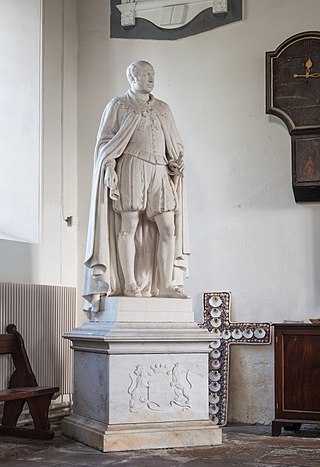
John Evans-Freke, 6th Baron Carbery, known as Sir John Evans-Freke, 2nd Baronet between 1777 and 1807, was an Anglo-Irish politician and peer.
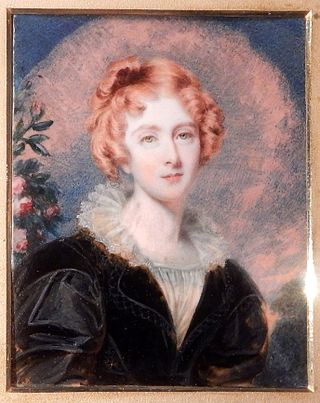
Isabella Cecil, Marchioness of Exeter, formerly Isabella Poyntz, was the wife of Brownlow Cecil, 2nd Marquess of Exeter, and the mother of the 3rd Marquess.
Philip Sherard, 5th Earl of Harborough, styled Lord Sherard from 1770 to 1799, was a British peer and politician.

Castlefreke, also known as Rathbarry, is a townland and village in County Cork, Ireland. The townland is located in the civil parish of Rathbarry on the R598 regional road, to the east of Rosscarbery.
Sir John Evans-Freke, 1st Baronet was an Anglo-Irish politician.
